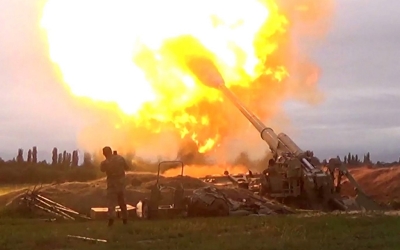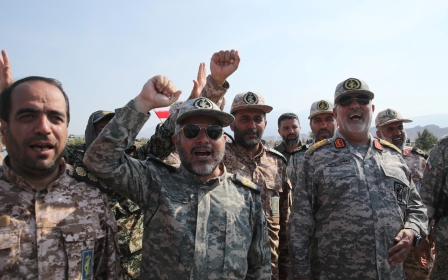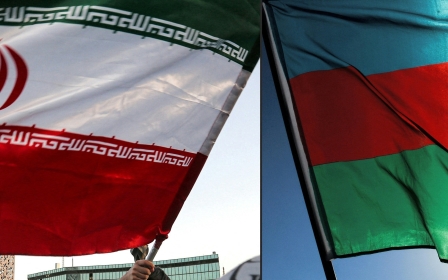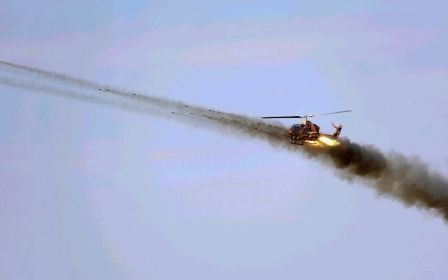Iran, Azerbaijan tensions heighten risks of military conflict
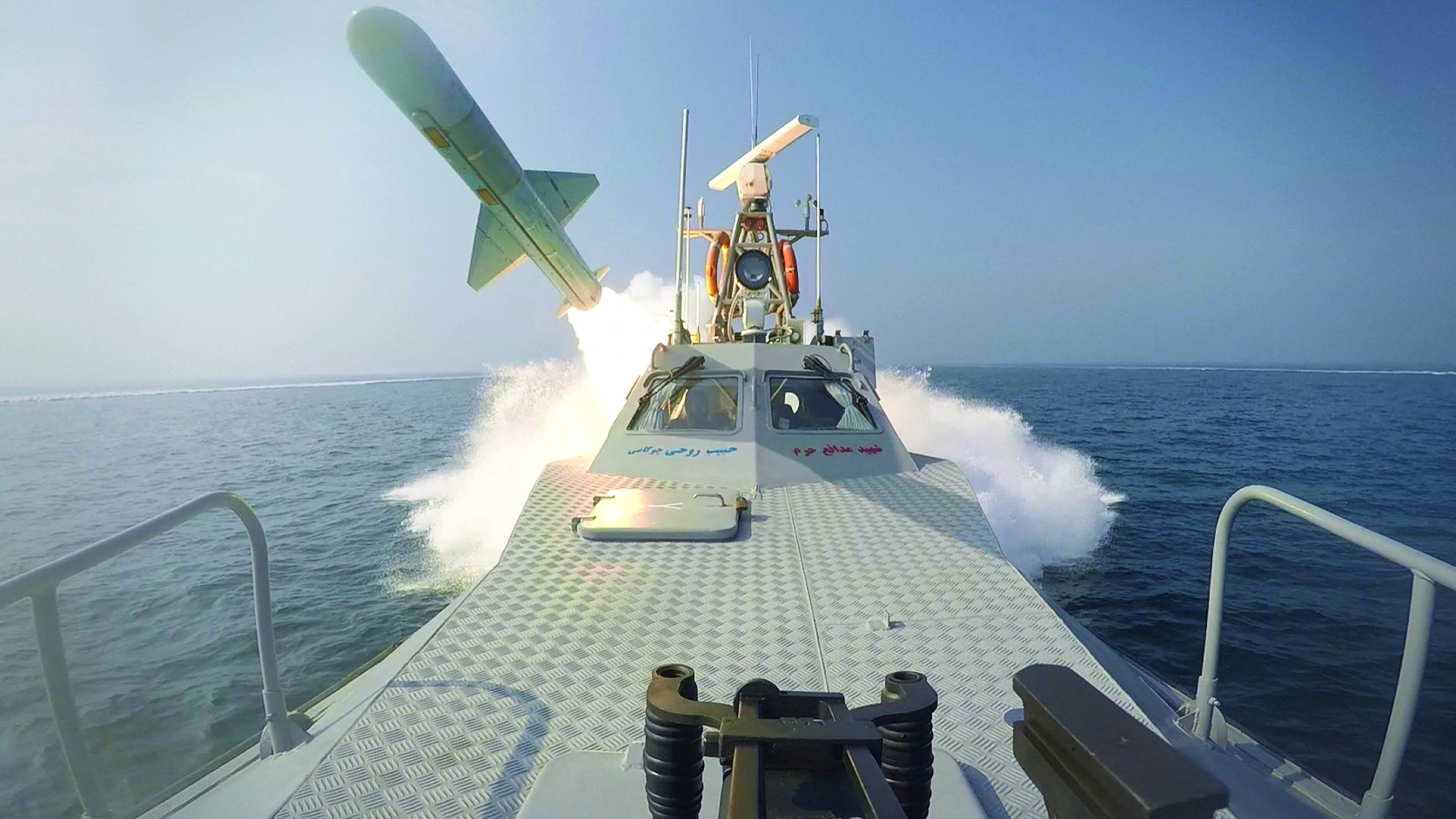
Tensions between Iran and northern neighbour Azerbaijan have been high for months, with increasing fears of conflict. Concurrent tensions between Azerbaijan and Armenia also risk sparking another violent war in the South Caucasus, in which Iran may intervene militarily on the latter's side.
But could Baku and Tehran really end up in a military confrontation against each other?
Baku closed its embassy in Tehran in January after a lone gunman attacked it, killing one person and wounding two others, followed by Azerbaijani President Ilham Aliyev directly blaming Iran for the incident.
Shortly afterwards, Baku inaugurated an embassy in Israel in late March, much to Tehran's consternation. Israel's foreign minister even said that he and his Azerbaijani counterpart had "agreed to form a united front against Iran". In early April, Azerbaijan expelled four Iranian diplomats, citing unspecified "provocative actions" and accused the Iranians of using locals to spy.
This week, Israel's foreign minister, Eli Cohen, ahead of a trip to Turkmenistan, visited Azerbaijan to open Israel's first embassy in the country, located just 20km from the Iranian border.
New MEE newsletter: Jerusalem Dispatch
Sign up to get the latest insights and analysis on Israel-Palestine, alongside Turkey Unpacked and other MEE newsletters
Aside from heightened diplomatic tensions, Iran is also concerned by Azerbaijan's actions in the South Caucasus. The September-November 2020 Nagorno-Karabakh war, in which Azerbaijan captured vast areas of disputed territory from Armenia, caught Tehran off guard.
Russia's clout in the region has also waned since it invaded Ukraine in February 2022, while the influence of Turkey, Azerbaijan's closest ally, has markedly increased.
Despite efforts toward a peace agreement and the normalisation of ties since the 2020 war, tensions between Baku and Yerevan are on the rise.
In October, Iran held another round of large military exercises near its border with Azerbaijan that included setting up pontoon bridges on the Aras River. That same month, it opened a consulate general in Syunik's Kapan, clearly signalling its opposition to the Zangezur corridor, which would offer a seamless transport route between Azerbaijan and Turkey.
On April 9, while hosting the secretary of Armenia's Security Council, Iran repeated its objections to "any geographical changes" in the South Caucasus.
Tehran's red lines
These overlapping tensions increase the possibility of military confrontation between Iran and Azerbaijan. Analysts see certain scenarios where Tehran may act with force against Baku.
"I think Tehran might respond more forcefully if it sees that its red lines are crossed," Emil Avdaliani, a professor of international relations at European University and scholar at Geocase in Tbilisi, Georgia, told Middle East Eye.
'Iran will not be as passive as it was in 2020'
- Mohammad Tabaar, professor
Iran also views the creation of a "veritable Turkic corridor" extending from Turkey to Turkmenistan as problematic.
"Tehran is genuinely unhappy with the changed balance of power to the north of its frontier and will likely increase its engagement with the region," Avdaliani said.
Mohammad Ayatollahi Tabaar, associate professor of international affairs at Texas A&M University's Bush School of Government and Public Service, also pointed out that Iran has repeatedly warned against any establishment of the Zangezur corridor.
"If there is no middle ground solution and Baku tries to establish that corridor with the use of force, Iran will not be as passive as it was in 2020," he told Middle East Eye. "This time it will act."
Iranian leaders also believe Aliyev has allowed Israel to use his country's territory as a launchpad against the Islamic Republic.
War scenarios
Farzin Nadimi, a defence and security analyst and associate fellow of the Washington Institute for Near East Policy, also sees scenarios where Iran might militarily intervene against Azerbaijan.
"Iran seems to have one clear agenda and that is to keep its transit routes through Armenia open and secured," he told Middle East Eye. "If Azerbaijan decides to make a move into Armenia proper to seize ground in order to control the Zangezur corridor, Iran will most likely try to prevent that by sending troops and heavy equipment into Armenia and along the Armenian-Azerbaijani border."
In that worst-case scenario, Nadimi anticipates that Iran will ensure its ground forces have air, artillery, and air defence coverage. However, that coverage would remain limited to Iranian forces only.
Iranian media recently speculated Tehran might provide Yerevan with military aid in the event of another war. Iranian officials have also said that Armenia is one of the countries that have shown interest in buying its homegrown military drones.
"Any Iranian military aid to Armenia will be limited to messaging to Azerbaijan and Turkey," Nadimi said. "I don't think Iran will transfer any significant amount of arms.”
Nadimi anticipates that any Azerbaijan-Iran military confrontation will be limited and quickly contained. Nevertheless, that doesn't mean there wouldn't be "some noticeable casualties on both sides".
While Azerbaijan's military is much smaller than Iran's, it has advanced military hardware procured from Israel and Turkey. Weaponry in its current arsenal includes advanced Israeli Harop loitering munitions ("suicide drones"), Turkish Bayraktar TB2 military drones, Israeli ballistic and anti-ship missiles, and advanced air defences.
But Iran would still have a clear advantage in any confrontation.
"Unless there is a major intervention by Turkey, which is very unlikely, a limited confrontation over the Zangezur corridor between Iran and Azerbaijan will more likely be advantageous to Iran because of its clear geographical vantage point and its firepower superiority," he said.
Tabaar pointed out that, despite its assertive regional influence, Iran has avoided intervening directly in countries in the region, often opting to work through local allies and proxies instead. Consequently, he anticipates Iran will back Armenia or work with local Azerbaijani Shia forces to counter Baku and protect its border with Armenia.
"But of course, there is always a possibility of escalation and direct involvement in the conflict," he said.
Iranian military exercises in its northwest frontier region have also signaled Tehran's "will and capability to retaliate against Baku".
The Israel and Turkey factor
Iran may hope it can compel Azerbaijan to rein in its position as Saudi Arabia has done. After years of war in Yemen and the September 2019 attack against vital Saudi oil installations attributed to Iran, the kingdom's powerful Crown Prince Mohammed bin Salman cooled his hawkish stance toward Tehran eventually taking steps to normalise relations in a deal brokered by China in early March.
"Similarly, in the case of Azerbaijan, Iran may try to show that President Aliyev's reliance on Israel could be costly for him and he is much more vulnerable than he realises," Tabaar said.
Tehran does not want Israel using Azerbaijan's territory against it. Baku has failed to convince its southern neighbour that its ties with Israel are similar to Turkey's - neither at the expense of, nor a threat to, Iran.
"Iran has a compartmentalised relationship with Turkey and would try to maintain it if a conflict with Azerbaijan starts," Tabaar said. "Turkey may not seek increased tensions with Iran either."
However, that may not be enough to avert a regional war.
"Conflicts often have unintended consequences, and tensions in the South Caucasus would intensify the old rivalries between Iran and Turkey," he added.
Middle East Eye delivers independent and unrivalled coverage and analysis of the Middle East, North Africa and beyond. To learn more about republishing this content and the associated fees, please fill out this form. More about MEE can be found here.


